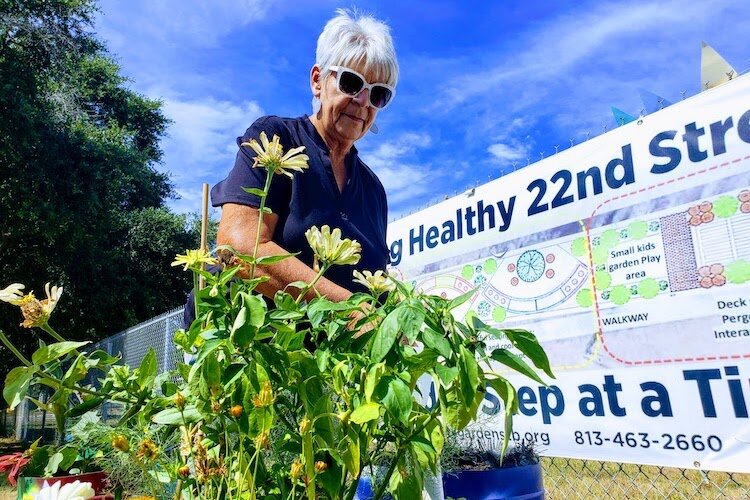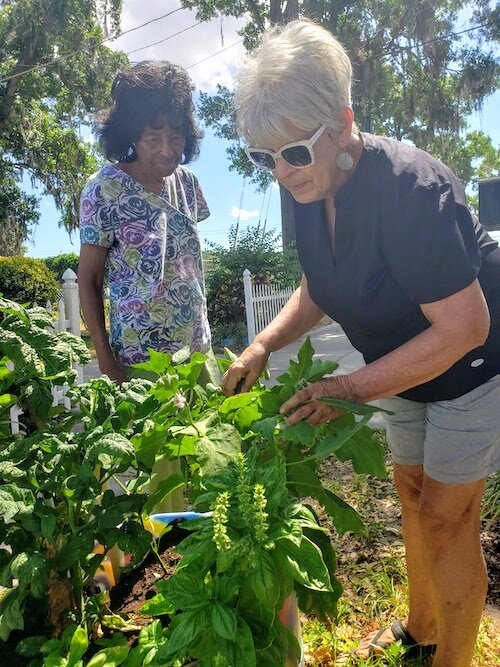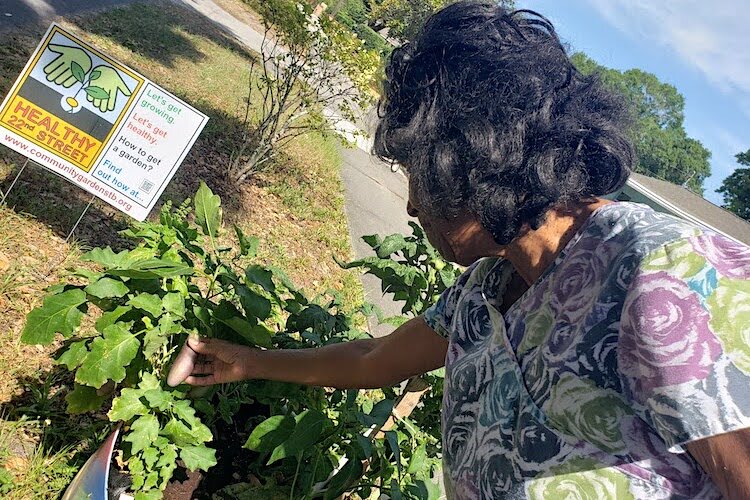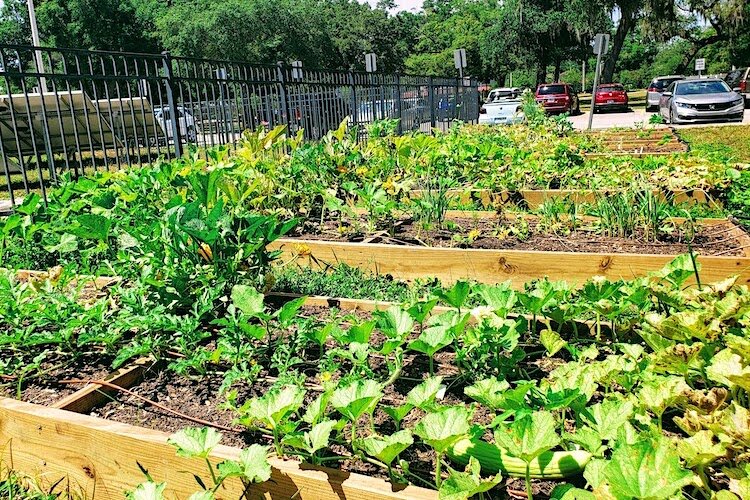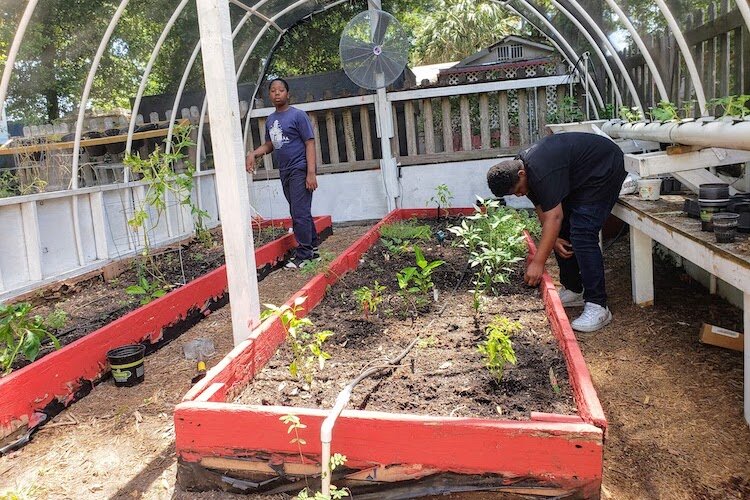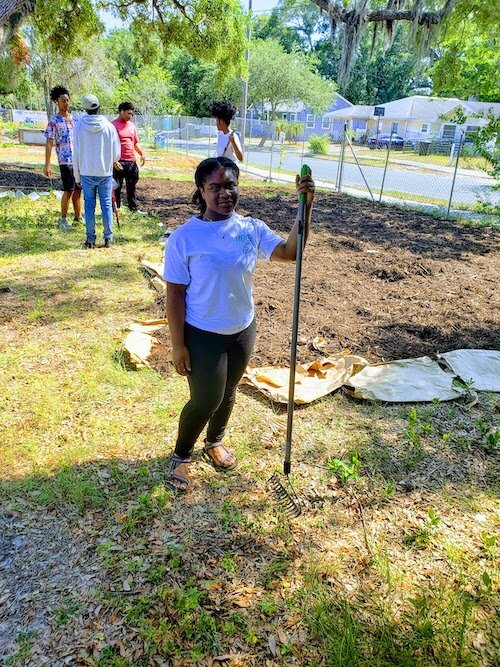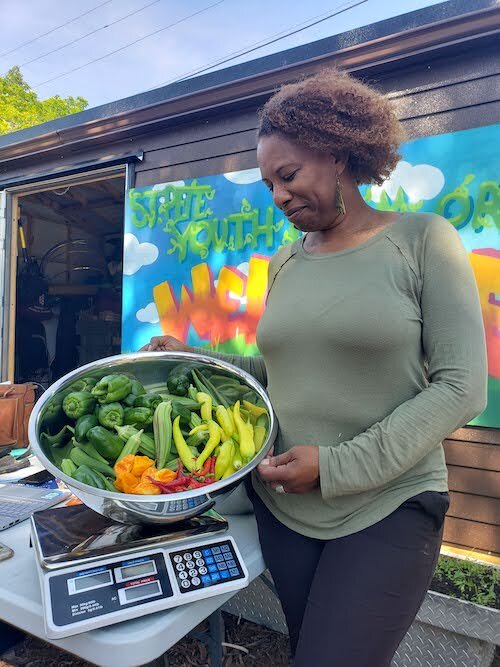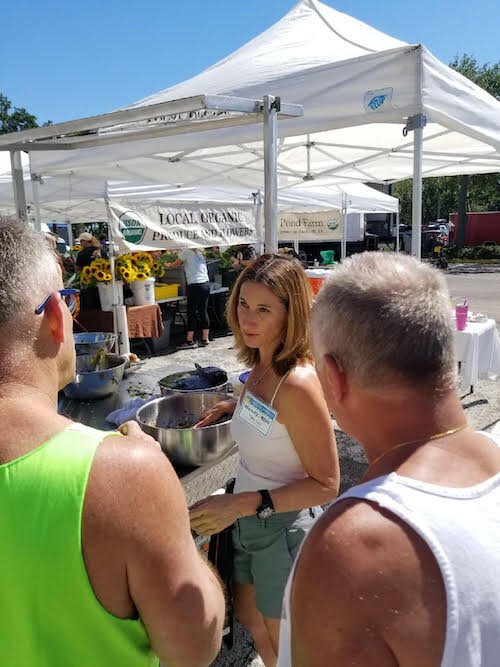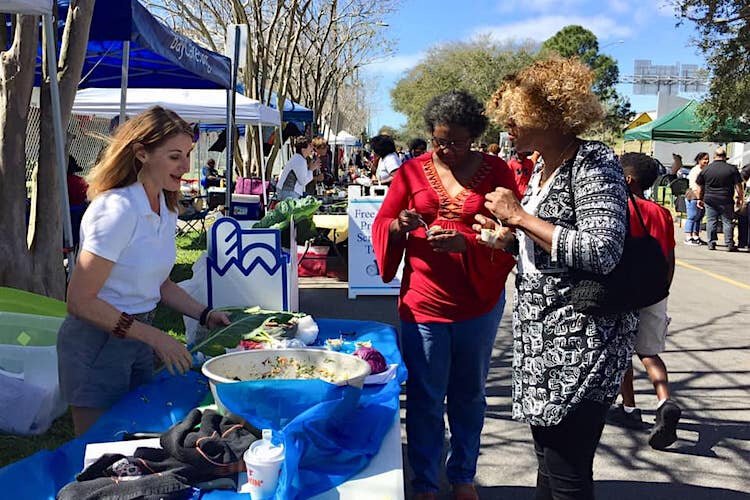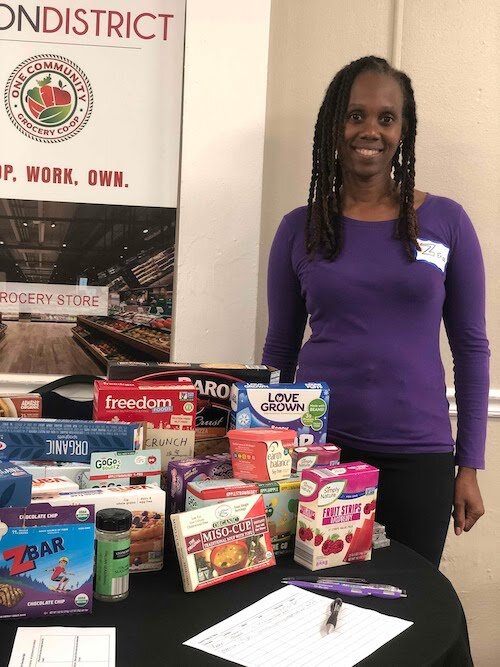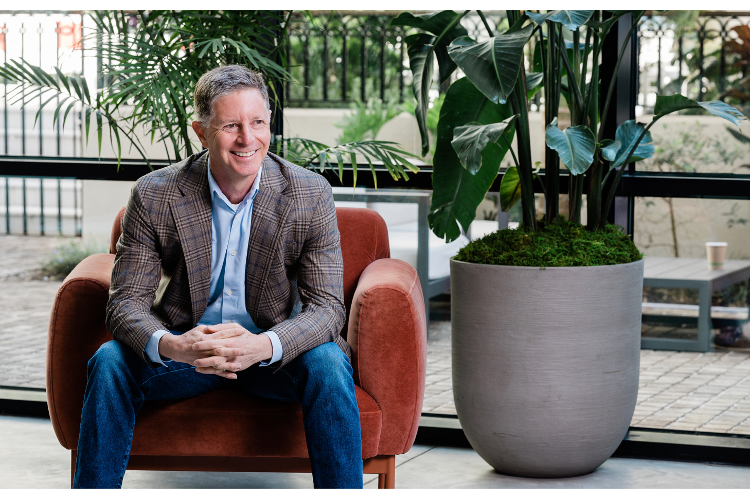Cultivating solutions to food insecurity in Tampa Bay
Collaborative community efforts — connecting nonprofits, government, and the private sector — are key to addressing local food insecurity challenges.
Over the past quarter of a century, Tampa Bay Area residents have oohed and aahed over the vivid colors and abundance of organic vegetables from growing food co-ops like Sweetwater Organic Farm. The iconic patch of land in Town ’n’ Country west of Tampa goes back to 1995 as the first urban farm in the region to have name recognition on both sides of the bridges that cross Tampa Bay. In addition to being a nutritional and culinary source, Sweetwater offers uniquely enlightening — and entertaining — workshops and events.
The farm became a game-changer in how locals appreciate freshness, purity and flavor in our foods. Since its halcyon, pre-9/11 days of “Walkin’ Lawton” Chiles governing Florida, neighborhood and community gardens have grown exponentially in number and become somewhat ubiquitous. Crops from them can be purchased at local farmers markets almost any day of the week.
In stark contrast, the U.S. Department of Agriculture has designated food-insecure areas across the nation, regions where 80 percent of residents live below the poverty line and live too far away to pay for a low-cost ride share to the closest grocery store with perishable, non-processed foods.
Locally food deserts exist throughout Hillsborough and Pinellas counties — the most prominent in East Tampa and South St. Petersburg. According to Hillsborough County’s Coalition of Community Gardens’ latest statistics, food insecurity is more predominant with non-white populations and coincides with chronic illnesses such as diabetes and heart disease.
So, while politicians nitpick how much we should aid and encourage self-sufficiency, disparities persist.
Policy makers too often overlook and underestimate one simple, quantifiable fact: “It’s more cost-effective to prevent illness when taking into consideration lost productivity and health care costs,” says Hillsborough County Food Systems Specialist Monica Petrella during a conference presented by the Coalition of Community Gardens.
“Increasing nutrition and physical activity — every $1 spent reduces spending by $5.60 over five years and $6.20 in 10 years,” she adds. “Every $1 spent on building trails and paths could save $3 in medical expenses.”
According to Petrella, collaborative community efforts are key to addressing food insecurity challenges.
“Solving the problem of food insecurity and nutrition awareness needs to be a grassroots effort,” Petrella tells 83 Degrees Media. “Anything less than that just displaces power.”
In this spirit, Kitty Wallace and Lena Young Green from the Tampa Heights community garden decided to merge their efforts a few years ago to help out upcoming and existing gardens, forming the garden coalition. The Coalition’s website offers information resources and an impressive roster of neighborhood gardens across the Tampa Bay region.
The Coalition’s most recent endeavor, Garden Steps, involves a demonstration garden that doubles as an educational site, assistance, and materials for front-yard gardens and garden supplies and coaching in local schools.
“We had done a pop-up garden and sat out there and got some input from the community about whether they’d be interested in the gardens,” Green explains. “Some of the comments that came back included, ‘Yeah, coming to a garden, it’s nice, but we’d like gardens in our own yards.’ We took that seriously. … So, now, we donate garden barrels and they get some training on how to manage them. And those are set in individuals’ yards who ask for them and we completely build out their garden, show them how to do it and bring the plants.”
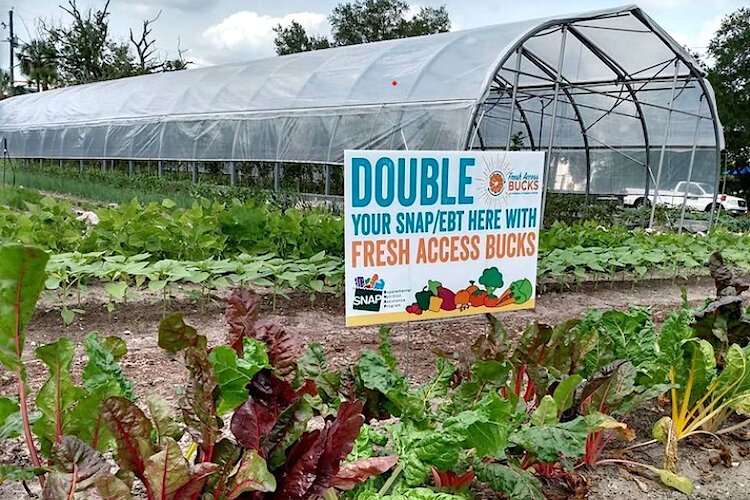
Turning obstacles into opportunities
For-profit and nonprofit strategies in addressing food insecurity are percolating in all sorts of ways — some more well-known and accessible than others.
Meacham Urban Farm grows around 35 different vegetables and fruits on two acres of cultivated land in Tampa Heights. The farm provides useful tips on its social media sites, and its store accepts Fresh Access Bucks (FAB) with SNAP (federal nutrition
In Pinellas County, the Urban Harvest provides seeds and educational support in a subscription format to help people start a home or community garden. Founder Elise Pickett offers online classes and workshops in person and via her YouTube channel, as well as an Amazon Associates account, which allows her to offer free content while generating revenue from ads.
Another active participant in improving food access, Rev. Andy Oliver serves as pastor for Allendale United Methodist Church in St. Petersburg. Oliver has spoken on a Florida Food Policy Council panel on how churches can address food insecurity and has put in overtime hours on justice work to bring awareness to systemic racism, immigrant concerns, reproductive justice, LGBTQ liberation, and other issues.
Sometimes humanitarian efforts come with challenges for houses of worship. Last year neighbors had complained to the city that the garden was a blight. The complaint forced Rev. Oliver to appear in front of the City Council, which summarily approved it.
But gardens do provide educational opportunities, the reverend stipulates. Having people with networking skills who are willing to champion a garden and be its cheerleader helps, he says.
Rev. Oliver’s right-hand man in the local food cause is longtime activist Ray Wunderlich, who approached Oliver and asked if he could plant slash pines on his property to help continue the native pine forest indigenous to St. Pete. After having to relocate two gardens, Wunderlich, owner of Wunderfarms, manages Allandale’s garden and landscape.
“A recent St. Petersburg ordinance has allowed the petri dish to be exposed to bring gardens to neighborhoods,” Wunderlich tells 83 Degrees, referencing the home produce ordinance (Ord. No. 448-H, and 7, 2-11-2021) that passed in February. The ordinance allows any public display or offering for sale to the public of one or more items of products grown on-site.
“It’s a little ironic and bittersweet given the real estate market and limited availability of land in Pinellas,” he adds.
Thankfully, a response to this dilemma has landed right on Wunderlich’s lap: The former president of the Sustainable Urban Agriculture Coalition (SUAC) has begun a project at a south St. Pete strip mall with an agency that the city brought in to rehab and educate the area.
“They reached out to me for guidance in developing the 16th Street Community Garden in an outdoor alcove,” Wunderlich says, adding that there are plans for pop-up events and educational workshops in the space.
Note: Wunderlich no longer works with SUAC though the organization presses on with educational efforts including composting and seasonal planting. He praises Woodson Museum of African-American Art president Gwendolyn Reese for her hard work in spearheading the educational nonprofit to help residents of Midtown.
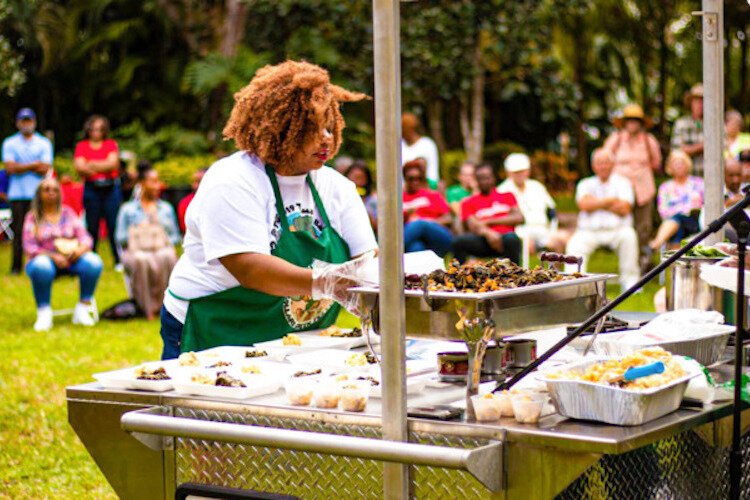
Reaping resources, cultivating collaboration
During the Coalition of Community Gardens conference last year, Renee Wallace, a USF scholar in studies related to health and wellness promotion and disease prevention advocacy, brought up public events as an effective way to reach more people.
No finer example of combining fun and awareness could be found than in the Tampa Bay Collard Green Festival. This year’s event, held in St. Petersburg in May, featured a limited format to accommodate a population that wasn’t completely vaccinated against COVID-19. Past events featured presentations from local chefs, expert gardeners, and vendors showcasing several ways to cook collard greens.
Founded by Boyzell Hosey, deputy editor of the Tampa Bay Times photo department, and Samantha Harris, a minister at Bethel Community Church, writer and publisher, the Collard Green Festival celebrates the joy of eating healthy and promotes the family tradition of meal gathering.
“People are starting to bake their own collard smoothies at home or are preparing their vegetables in different ways,” Harris says of the feedback she’s gotten from the fest. “We use an electric cooker for the greens that we prepare onsite. And we also do it at home with our own families, and folks are realizing that ‘Hey, you don’t have to spend two, three, four hours on a stove, boiling your ingredients’ — boiling nutrients out of your greens. … You can, you can pressurize them. It’s a much better way of preparing your foods where you retain all the nutrients.”
Midtown’s Markets, part of the Live on the Deuces event series have also brought fresh produce to the USDA-designated food desert of Midtown.
“As we come out of quarantine, there’s going to be an explosion of food events and that’s a good thing,” says Wendy Wesley, a St. Petersburg-based dietitian, nutritionist and good-health activist.
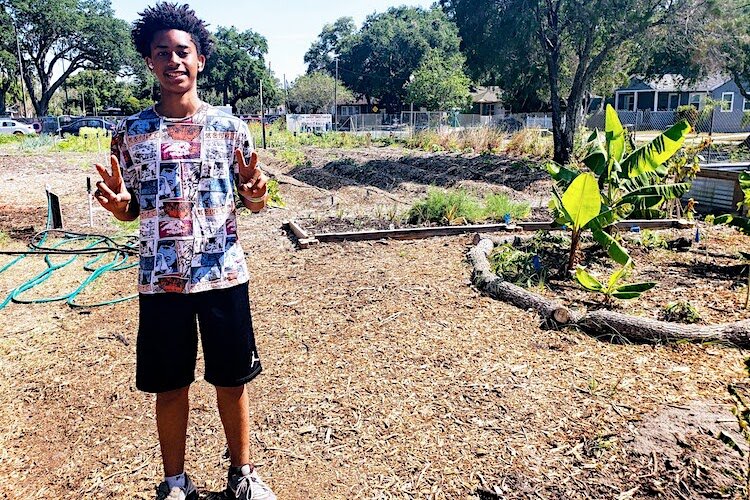
Hybridizing grocery store alternatives
In St. Petersburg, the One Community Grocery Co-Op continues to grow its membership and build awareness for the problem of nutrition insecurity city-wide. Right now there are around 40 members. A membership drive focused on the Midtown community is underway.
Co-op founding member/President Erica Hardison sets quite an example of life possibilities. She’s a mathematician, mother, educator, robotics enthusiast, doula, Rotarian, resource consultant, and community organizer — “but not at the same time.”
“When we look back at the history of co-ops, there are several different versions,” Harris explains. “Ours is more of a mutual aid. So everybody has a voice, everybody’s opinion is valued. We’re making our decisions based on what the community has told us.”
During the pandemic, she and members of the co-op worked with the St. Petersburg Midtown Rotary Club and at pop-up locations at Atwater’s and other locations.
“We’ve worked with like the Lake Maggiore Shores Neighborhood Association and Lakeview Presbyterian church,” she says. “We had food truck vendors who at that point weren’t able to make a living.”
They have suspended activity between events but will be in full swing again soon. Up-coming co-op events include a youth oratorical competition focused on the topic of “food and community,” giving 3-5 minute speeches. Moderator and keynote speaker Addison Thomas with Worchester Youth Cooperative will talk about what’s going on in St. Pete and nationally regarding co-ops. The event is currently seeking sponsors, and a game night called “Co-opoly” is also being planned. Updates on these future events will be posted on the co-op’s Facebook page.
(Coincidentally, Petrella of Hillsborough County mentioned co-ops during our interview: “When it comes to food insecurity and grocery stores, I believe the best solution is a community-owned grocery co-op … it places the power into the community.”)
In Midtown, The St. Pete Youth Farm, a youth development program and urban farm in the South St. Pete Community Redevelopment Area (CRA), is one of the largest of its kind in Florida. At the farm, high school-age participants pick up valuable skills such as entrepreneurship, financial literacy, leadership, farming, and culinary expertise while working with local charities and markets.
Ava Deveaux, Bartlett Park Community Garden director and civic leader, praises Bristol as a powerhouse in the community.
“She transformed a sad, empty lot into a beautiful, bountiful garden,” Deveaux says of Bristol.
“The Youth Farm has been a calming, unifying experience,” St. Pete Youth Farm Youth ambassador Kazana Bennett, 19, tells 83 Degrees Media.
Deveaux’s leadership of the Bartlett Park Community Garden has also been fruitful. One of the first in Tampa Bay, the garden has flourished and expanded offering a peripheral food forest with fruit trees that are free for the picking.
“We have a big papaya tree,” Deveaux says with enthusiasm about her “forest,” which she plans to grow more in the coming year. “People have visited who didn’t know what papayas were before picking from our tree. We also have a chicken coop and give out farm-fresh eggs.”
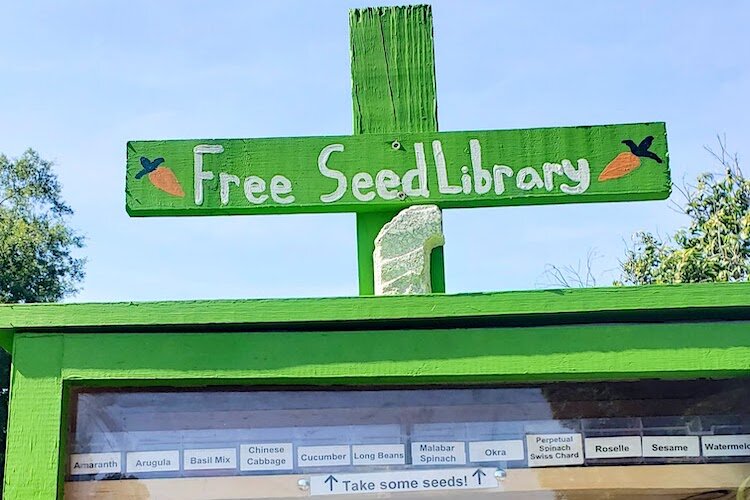
Defining government’s role in solving food insecurity
In St. Petersburg, residents voice frustration at the city for not coming up with a foolproof way to lure and keep a grocer in an anchor-less shopping center in South St. Pete that was abandoned by first SweetBay and most recently by Walmart. The city has issued RFPs, but no stores have moved into Tangerine Plaza — yet.
Nonetheless, Midtown has persevered without a local, full-service grocery store for more than four years.
Through grocery distribution efforts and volunteer work, Feeding Tampa Bay and other charitable organizations have come up with new, encouraging approaches to getting locally grown fruits and vegetables into the hands of families in the most need.
Statewide, Feeding Florida has created a map and directory of Fresh Access Bucks (FAB) markets currently operating. The FAB program provides discounts (doubles your money) on Supplemental Nutrition Assistance Program (SNAP) purchases of Florida-grown produce. Feeding Florida also provides a directory of food banks, food pantries, and soup kitchens.
Fresh Access Bucks (FAB) is a USDA-funded statewide nutrition incentive program that increases the purchasing power of SNAP recipients to buy fresh fruits and vegetables.
“FAB is a fantastic program that doubles access to Florida produce,” says Wesley. “FAB significantly increases people’s ability to access fresh Florida produce. We’ve found meaningful solutions to food insecurity through FAB and SNAP, giving people [incentives] to double their FAB bucks on Florida produce. More than we can get the word out, the more we can get nutrition into the community.” (Find out more about FAB and FAB-accepted outlets.)
Wesley has been active in promoting new ways to promote healthy eating and finding alternative food distribution in food desert-designated neighborhoods.
She has worked with politicians and organizations that have made promises but disappointed her and community organizations that have inspired her and keep her going.
“Simply addressing food insecurity throws calories at the problem but doesn’t solve it,” Wesley says. “Finding ways to meet nutritional needs and the enjoyment of fresh fruits and vegetables helps us address nutrition insecurity and fight chronic disease.”
Wesley adds that the Southside Fresh Market at Sunday on the Deuces plans to feature FAB and SNAP “very soon.”
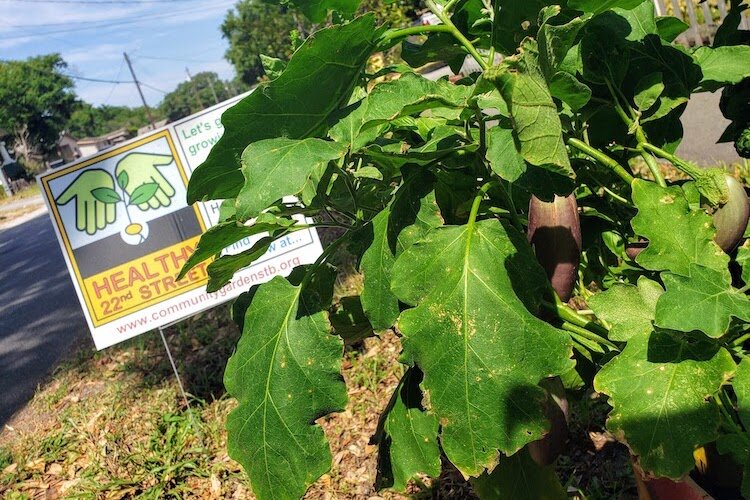
Taking a deeper dive into problems to find solutions
Meanwhile, in Hillsborough County, food advocate Petrella says she’s working on a grant that could help Hillsborough establish a food policy, which will enable further networking of food sources and community partnerships.
“We as a county don’t have goals right now,” she says. “So we still need to bring everybody together and do a deep dive and understand what we do have and how can we all work together. A food policy will help us make that happen, but these things just take time. They take a lot of relationship building, partnership building, and coalition building. An email thread is not going to accomplish that. You have to be able to meet people and trust them and get to know them and build a relationship over time.”
The most pragmatic person playing the numbers game should grasp that solving food insecurity makes sense for everyone.
“It’s generally easier to be proactive about an issue than reactive,’’ says Petrella. “I want it to be where everywhere we walk, we trip over a community garden.”

